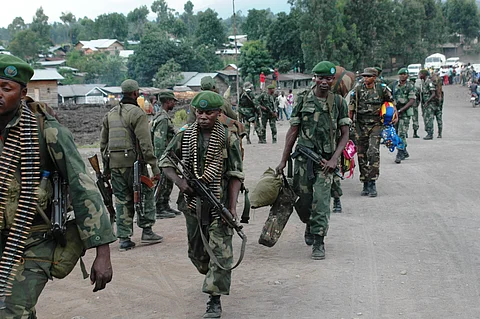

The M23 rebel group has ramped up its offensive in the Democratic Republic of Congo (DRC), taking control of important areas such as Nyabiondo village, which is situated 100 km north of Goma along the route to Walikale, a strategic town that hosts a major government-operated mine essential for tax revenue. This escalation follows their recent captures of Goma and Bukavu, the capitals of North and South Kivu provinces, as the group's influence expands in the mineral-rich eastern region.
In a significant setback for government forces, the Group Kabido, a long-time armed ally of the DRC military, has defected to M23, citing dissatisfaction with government mismanagement. Analysts believe this indicates turmoil within state forces, with M23 taking advantage of weakened alliances.
The humanitarian impact is dire. The UN reports that attacks on hospitals and civilian infrastructure have displaced over 100,000 people in Lubero alone, leading to the closure of vital services. Recent clashes in Masisi have resulted in the deaths of at least four civilians, contributing to a broader death toll that has surpassed 7,000 since January, many of whom were non-combatants.
In response, the DRC government has announced a bounty of 5 million for the capture of M23 leaders Corneille Nangaa, Bertrand Bisimwa, and Sultani Makenga, all of whom have been sentenced to death in absentia. An additional 4 million is being offered for information regarding their associates.
M23, which was reactivated in 2021 after a decade-long pause, is one of over 200 armed groups competing for control of eastern DRC's resources. The UN and US have accused Rwanda of supporting the rebels, a claim that Rwanda has denied. The roots of the conflict are tied to regional competition over minerals and historical tensions, with civilians suffering the most from the violence and displacement.